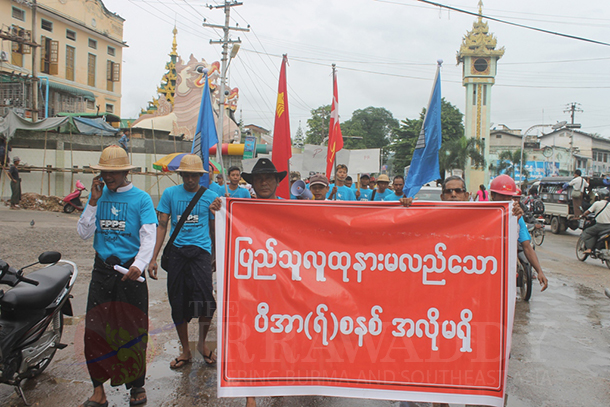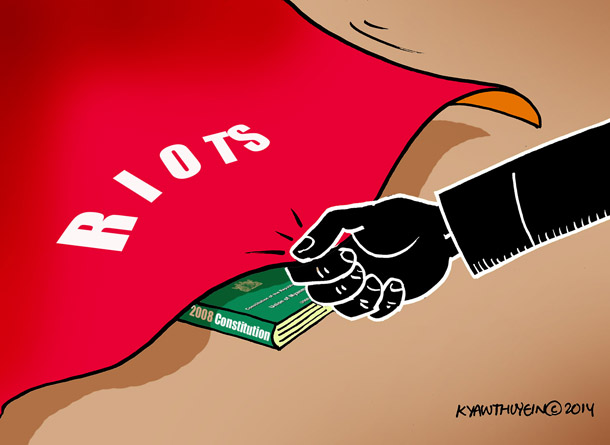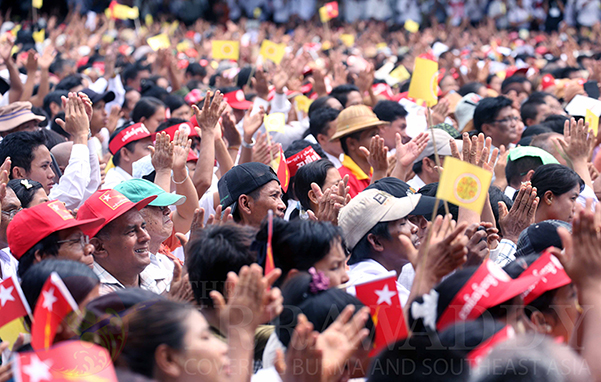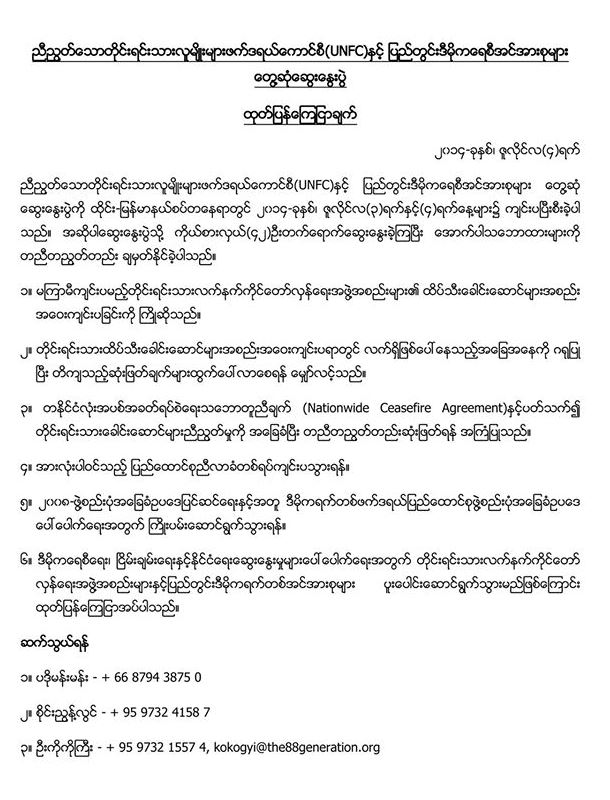Posts Tagged ‘88 Generation Peace and Open Society’ (16 found)
Move to Proportional Representation a Power Grab by the Military-backed USDP
 The debate over a potential change to Burma’s electoral system, from a First Past the Post System (FPP) to a Proportional Representation System (PR) is gathering momentum, with a new committee formed by the Parliamentary lower house speaker, Shwe Mann, to discuss whether this is appropriate for the country. While the general debate over suitability of differing electoral systems is complex and broad, if seen through the eyes of the context in Burma, there is one clear winner if this change is implemented before the 2015 general election: the military-backed Union Solidarity and Development Party (USDP) which is unsurprisingly supportive of this change.
The debate over a potential change to Burma’s electoral system, from a First Past the Post System (FPP) to a Proportional Representation System (PR) is gathering momentum, with a new committee formed by the Parliamentary lower house speaker, Shwe Mann, to discuss whether this is appropriate for the country. While the general debate over suitability of differing electoral systems is complex and broad, if seen through the eyes of the context in Burma, there is one clear winner if this change is implemented before the 2015 general election: the military-backed Union Solidarity and Development Party (USDP) which is unsurprisingly supportive of this change.
The argument for Burma to change to PR is certainly compelling. Theoretically, it will give smaller political parties, such as the NDF who proposed the motion, more chance of representation in the legislature, while the same goes for smaller ethnic political parties. Yet it is much more complex than this. For constituencies in ethnically concentrated areas, where there is a dominant ethnic political party, for example the Rakhine Nationalities Development Party (RNDP) in Arakan State, FPP is more advantageous for that dominant ethnic political party, as seen in the RNDP’s dominance of the Arakan State legislature. Focusing on winning seats in ethnically concentrated areas might be the only way that ethnic political parties guarantee representation under the first past the post system. Yet under PR, if the total population of a certain ethnic group is under the 1% threshold of votes needed to gain a seat that is typical of PR, then that party will not win any seats at all, even if the ethnic nationality it represents is dominant in certain constituencies.[…]
• • •Burma Must Find a Path to a More Tolerant Society
 The streets of Mandalay, which just recently drew over 20,000 people in support of National League for Democracy and 88 Generation Peace and Open Society’s joint campaign to amend Section 436 of the Constitution in support of democratic reform, remain deserted this last week as many business owners closed their shutters in fear, following serious unrest in the city. In the second largest city in Burma, violent mobs took over the streets, leaving two people dead and dozens injured. Some stated that over “70 police were here but did nothing,” as Buddhist mobs torched a school in a Muslim area. Ironically the international community has mostly stayed silent in the wake of the recent events when their actions are needed to protect the people of Burma, especially the most vulnerable communities, more than ever.
The streets of Mandalay, which just recently drew over 20,000 people in support of National League for Democracy and 88 Generation Peace and Open Society’s joint campaign to amend Section 436 of the Constitution in support of democratic reform, remain deserted this last week as many business owners closed their shutters in fear, following serious unrest in the city. In the second largest city in Burma, violent mobs took over the streets, leaving two people dead and dozens injured. Some stated that over “70 police were here but did nothing,” as Buddhist mobs torched a school in a Muslim area. Ironically the international community has mostly stayed silent in the wake of the recent events when their actions are needed to protect the people of Burma, especially the most vulnerable communities, more than ever.
The series of events began on 1 July, just hours after the extremist Buddhist monk, and leader of the anti-Muslim 969 movement, Wirathu, picked up a questionable post from the social media site Facebook that highlighted an alleged rape of a Buddhist woman committed by two Muslim brothers. According to David Mathieson, a senior researcher for Human Rights Watch, Wirathu, who is based in Mandalay, appeared to have played “a pivotal role” in inciting the unrest, fanning tensions by spreading accusations with religious inferences, while calling for action against the two Muslim brothers who own a teashop in the same area where his monastery is located […]
• • •Burma: Election Body Intimidating Opposition
Burma’s electoral commission should immediately cease threatening and intimidating the opposition National League for Democracy (NLD) party, Human Rights Watch said. The electoral commission should also drop proposals that would set limits on future election campaigning, and President Thein Sein and the Burmese government should publicly reject such proposals […]
• • •Burma’s Top Priority Must Be Constitutional Reform for All
 The NLD and 88 Generation Peace and Open Society have been campaigning actively and vociferously for various amendments to the military-drafted 2008 Constitution. Over the weekend, thousands of supporters came out in support of mass rallies for constitutional reform held in Rangoon and Mandalay on Saturday and Sunday, respectively. It is the first time that the two pro-democracy parties have co-hosted an event […]
The NLD and 88 Generation Peace and Open Society have been campaigning actively and vociferously for various amendments to the military-drafted 2008 Constitution. Over the weekend, thousands of supporters came out in support of mass rallies for constitutional reform held in Rangoon and Mandalay on Saturday and Sunday, respectively. It is the first time that the two pro-democracy parties have co-hosted an event […]













 All posts
All posts